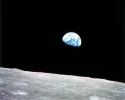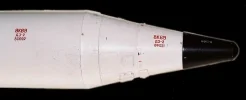In the 1980s, during the nascent days of the satellite communications industry, Luxembourg foresaw the fat cat it could become. The tiny European nation, known for steel manufacturing and tax breaks, provided financial support and passed regulations that allowed its homegrown satellite company, SES, to thrive. And because it provided that early support, one of the globe’s smallest countries came to host the world’s second-largest commercial satellite operator.
Luxembourg liked the way that went down. And now, 30 years later, the country is positioning itself to iterate on that plot, in a different off-Earth industry: asteroid mining.
Asteroid mining is what it sounds like: going to the solar system’s hard bodies, extracting valuable resources, and using them to make something new. If humans are going to become a spacefaring species, they can’t launch all the necessaries from Cape Canaveral. Instead, spacecraft needing a top-off could get fuel from asteroid ice. Humans could scrape space materials to construct orbiting hotels. Martian colonists needn’t bring excessive carry-ons: They could draw building materials and H2O from their home body or an asteroid.
Bold forecasters speak of a full-on celestial supply-chain. In that version of the future, the entities that control that supply chain—doing the mining and selling the resources—will become very rich. They will, in a way, rule that final frontier. In 2016, Luxembourg began taking steps toward dominating the industry, and so potentially the flow of cash and commodities beyond Earth







 .
.